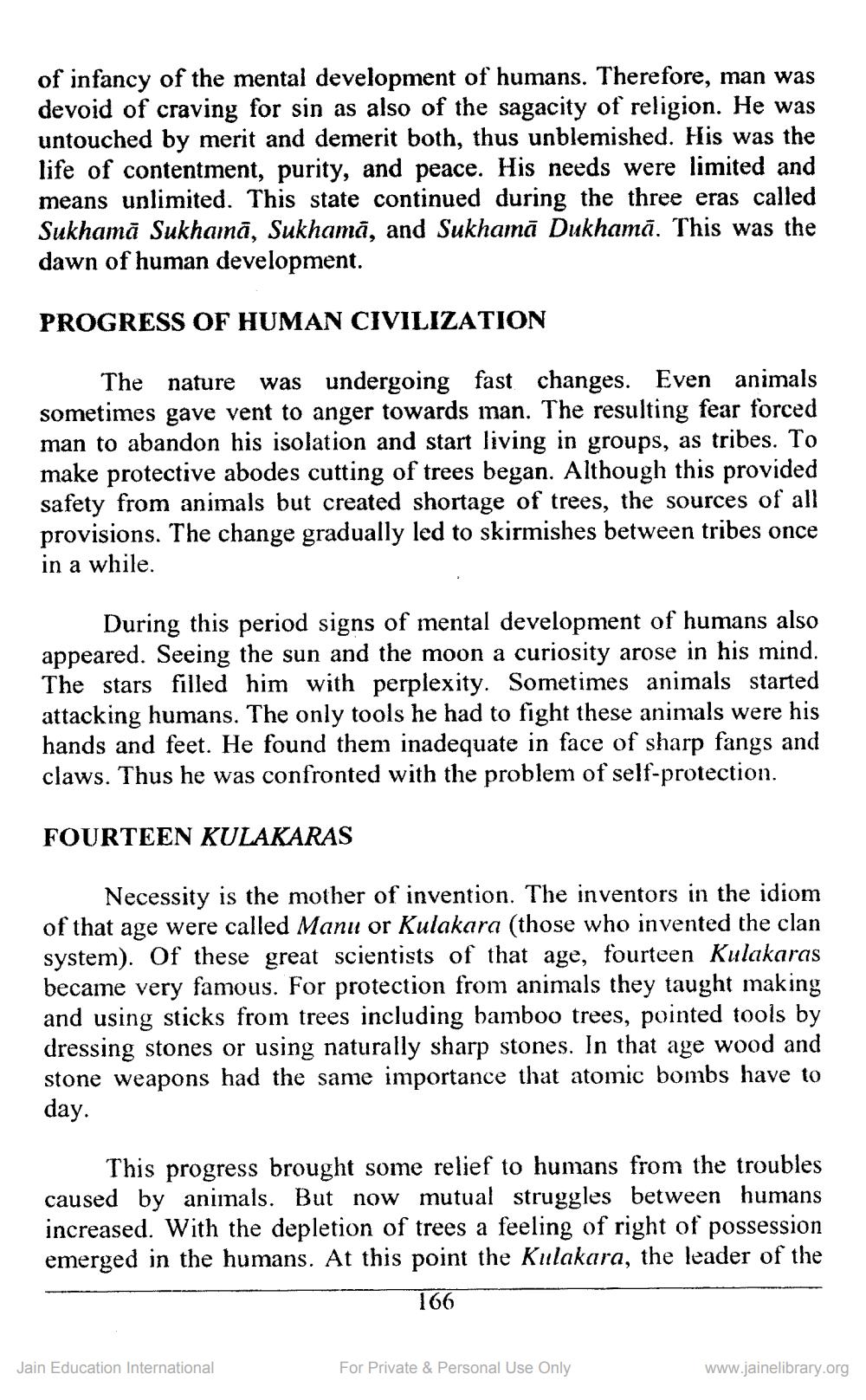________________
of infancy of the mental development of humans. Therefore, man was devoid of craving for sin as also of the sagacity of religion. He was untouched by merit and demerit both, thus unblemished. His was the life of contentment, purity, and peace. His needs were limited and means unlimited. This state continued during the three eras called Sukhamă Sukhamā, Sukhamă, and Sukhamā Dukhamā. This was the dawn of human development.
PROGRESS OF HUMAN CIVILIZATION
The nature was undergoing fast changes. Even animals sometimes gave vent to anger towards inan. The resulting fear forced man to abandon his isolation and start living in groups, as tribes. To make protective abodes cutting of trees began. Although this provided safety from animals but created shortage of trees, the sources of all provisions. The change gradually led to skirmishes between tribes once in a while.
During this period signs of mental development of humans also appeared. Seeing the sun and the moon a curiosity arose in his mind. The stars filled him with perplexity. Sometimes animals started attacking humans. The only tools he had to fight these animals were his hands and feet. He found them inadequate in face of sharp fangs and claws. Thus he was confronted with the problem of self-protection.
FOURTEEN KULAKARAS
Necessity is the mother of invention. The inventors in the idiom of that age were called Manu or Kulakara (those who invented the clan system). Of these great scientists of that age, fourteen Kulakaras became very famous. For protection from animals they taught making and using sticks from trees including bamboo trees, pointed tools by dressing stones or using naturally sharp stones. In that age wood and stone weapons had the same importance that atomic bombs have to day.
This progress brought some relief to humans from the troubles caused by animals. But now mutual struggles between humans increased. With the depletion of trees a feeling of right of possession emerged in the humans. At this point the Kulakara, the leader of the
166
Jain Education International
For Private & Personal Use Only
www.jainelibrary.org




